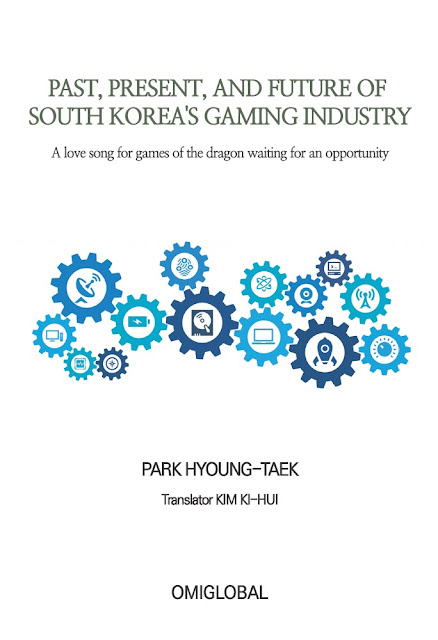泥中蟠龍's Game愛歌 [A love song for games of the dragon waiting for an opportunity] China's double standard
泥中蟠龍's Game愛歌
[A love song for games of the dragon waiting for an opportunity]
China's double standard
October. 11. 2018.
There is a Korean slang "naero nahmbool". The abbreviation, that seems like an idiom, literally means that “my affair is a romance, but other people's romances are all loved affairs." It is often used to satirize someone who is inconsistent or distorts the same situation to his/her advantage.
The 2018 BRICS summit was held in South Africa this July. BRICS is the acronym coined for an association of five countries: Brazil, Russia, India, China, and South Africa. They are major emerging national economies with a large territory, big population, and rich resources. Xi Jinping, General Secretary of the Communist Party of China, strongly criticized the U.S. in his keynote speech. Xi argued, "While unilateralism and protectionism are increasing over the world, we should be against economic hegemony and power politics." The paramount leader recently repeated his assertion that blaming American unilateralism and monetary hegemony, China—as a key country, builder, and contributor in the current international system—would firmly support multilateralism and liberalize trade and investment. I don't want to stand up for either of both in the China–United States trade war. However, his argument is a typical "naero nahmbool".
China is the best-known example of pursuing of protectionism. The country has used various ways of non-tariff barriers based on its huge domestic market. Today I'd like to talk about unfair trade practices in the content industry among many other industrial sectors. Tencent, the top Chinese multinational conglomerate, has rapidly grown by publishing imported games in the Chinese on-line gaming market where foreign game companies have been prohibited to directly access it. If Korean game developers could publish their games themselves in China, the world's largest video game company wouldn't have existed. Many internet businesses, that are so profitable by running the mobile games market, also wouldn't have survived if Google would have entered the Chinese market with its Google Play store. South Korean stars have been banned appearing in Chinese TV shows since Hallyu falls victim to Korea-China diplomatic row. A K-drama made by a local drama production company that I invested in is into its second year without passing broadcasting regulations although a Chinese state-owned company laid out the money in and a Chinese actor starred in. Online video-sharing platforms patterned after YouTube is making a big gain because it is blocked in mainland China. The Chinese government has helped the growth of its businesses—Baidu, Alibaba, Weibo, and WeChat, etc.—to build their castle while their competitors—Facebook, Twitter, Amazon, and KakaoTalk, etc.—all have been banned in China. Now Korean games are even excluded from selling by Chinese publishers in China proper. Besides, many Korean companies, that signed a contract with Chinese businesses, suffered from economic difficulties or ended up declaring bankruptcy after receiving notice of the cancellation of the contract or rejection of deliberation. It's not making news anymore.
We should be against the economic hegemony and power politics of China as long as it pursues its protectionism and unilateralism. China is not a responsible country despite its economic power and doesn't play a vital role in the current international system. China's claim about the US hegemony is far from a romance. It is only a play-the-victim love affair.
※ This is from Kyunghyang Games column by 泥中蟠龍 since September 2013.
(http://www.khgames.co.kr)
Translation by Kim Ki-hui
![China's double standard 泥中蟠龍's Game愛歌 [A love song for games of the dragon waiting for an opportunity]](https://blogger.googleusercontent.com/img/b/R29vZ2xl/AVvXsEgEH7nZbfvMyMUPssp9qYz13aSfQijN5HiTM-QPonHn-_GLGdLrZuUYjq7jqCrUGQiN0MULI7cTP-r4iiyaObSAv0A2Ked2ao32PJPUeC0BqGYgLINr1eGUXE97ZzaK0LVDuZ-LxsG1SLw/w438-h640/%25EB%258C%2580%25ED%2595%259C%25EB%25AF%25BC%25EA%25B5%25AD%25EA%25B2%258C%25EC%259E%2584%25EC%2582%25B0%25EC%2597%2585+%25EC%2596%25B4%25EC%25A0%259C%25EC%2598%25A4%25EB%258A%2598%25EA%25B7%25B8%25EB%25A6%25AC%25EA%25B3%25A0%25EB%2582%25B4%25EC%259D%25BC_%25EC%25B1%2585%25ED%2591%259C%25EC%25A7%2580_%25EC%2598%2581%25EB%25AC%25B8+%25ED%2591%259C%25EC%25A7%2580.jpg)


Comments
Post a Comment